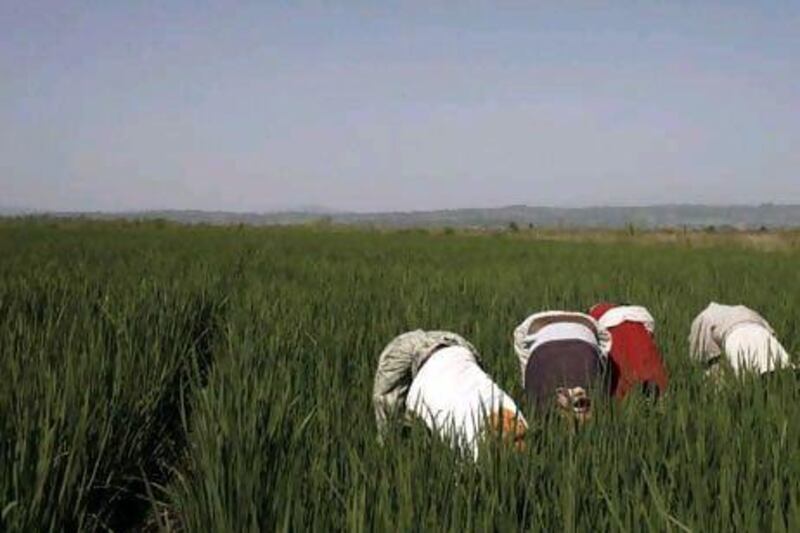Middle East investors are ploughing increasing amounts of cash into African farmland as global concerns over food security continue to rise.
Saudi Star Agricultural Development, a food company based in Ethiopia and owned by the Ethiopian-Saudi billionaire Mohammed al Amoudi, announced plans this month to invest US$2.5 billion (Dh9.18bn) in an Ethiopian rice-farming project.
The commitment comes just weeks after the Saudi company Manafea Holding announced it would invest $125 million in Zambia, in part to develop a pineapple farm and build a fruit-processing plant.
Nicholas Lodge, the managing partner of Clarity, a new financial and agriculture consultancy in Abu Dhabi, says agricultural investment in Africa is growing.
"You are going to see more investment from the Middle East," Mr Lodge said. "Qatar and the UAE have been doing the same [as Saudi Arabia] at a government and company level."
The UN's food price index hit a record peak last month at 236 points, up 34 per cent from a year earlier.
The sharp increases in commodity prices continue to drive up food prices across the Middle East, prompting governments and companies to try to cut costs by buying directly from commodities producers.
Saudi Star plans to export two thirds of the food it will grow on the Ethiopian land, with Saudi Arabia expected to consume a large portion of the produce.
The company has leased 10,000 hectares in the Gambela region for 60 years and expects to rent a further 290,000ha from the government.
"When you have population growth in a region that's unsuitable for food production, governments and the private sector have no choice but to look to where they can get it in the future," Mr Lodge said.
It is estimated that in the past five years Saudi Arabia has invested more in Ethiopia than has any other country.
Sub-Saharan Africa has half of the world's arable land, according to the World Bank, and already Middle East companies and governments have large interests in the region.
Saudi Arabia is the largest single-country investor in Sudan, with about half of all foreign investment. The UAE, Qatar and Bahrain have also invested in African agricultural land.
The demand for land is being exacerbated by rising food prices, driven in the long term by a growing world population and a burgeoning middle class in emerging markets.
Speaking at the Jeddah Economic Forum last week, Kito de Boer, the senior director for the Middle East at the management consultancy McKinsey & Company, said demand for food would rise by about 48 per cent above present levels by 2030.
In the short term, food prices have been affected by natural disasters such as heat waves in Russia and floods in Australia and Brazil.
To stay on top of rising food prices and food-security concerns, the Saudi government announced in January it had identified 27 countries for agricultural investment.
The Gulf imports about 80 per cent of its food, remaining vulnerable to price volatility.





